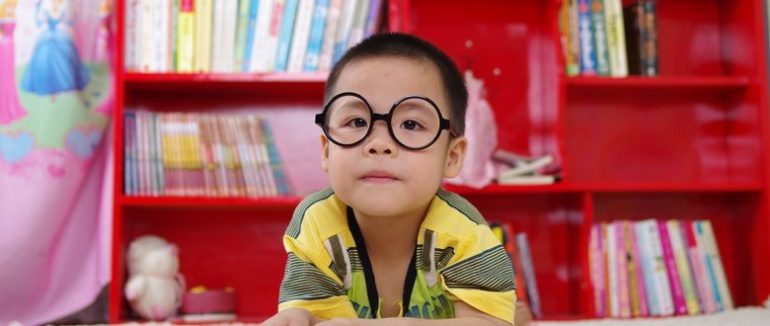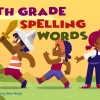Spelling Bee History
A spelling bee is an event in which participants are asked to spell an extensive selection of words, usually with varying degrees of complications.
In this article we propose a quick spelling bee history.
The idea is thought to emanate in the United States, and spelling bee competitions, along with other versions, are now held around the world in several countries.
The very first individual to ever win an official National Spelling Bee also known as The Scripps National spelling Bee was Frank Neuhauser in 1925, Washington D.C at age eleven.
The History of the word ‘Bee’ in Spelling Bee
The term ‘ as used in the phrase “spelling bee”, is one of those puzzles in language that has never been accounted for satisfactorily. Most early students of language and those who use the word, assumed that the word referred to the insect.
They assumed that this meaning had probably been initiated by the obvious uniformity between the human gatherings and the industrious, social-nature of the beehives.
But in recent years, researchers have rejected this suggestion, stating instead that the “bee” is a completely different word.
“Bee” is a relatively old and widely-used word, which refers to a community-social gathering or assembly during which neighbors and friends join together in a single activity (barn raising, quilting, sewing, etc.) usually to help a family or a person.
According to historical studies reported in dictionaries, the word in all likelihood comes from dialectal bean or been (which means ‘help given by the neighbors’), as it came from Middle English bene (meaning ‘prayer’, ‘boon’ and ‘added service by a tenant to his lord’).
Perhaps it’s good we settled for the term “bee “as it’s simple, buzzy and also easy to spell.
History of the Spelling Bee
The First known example in print is a ‘spinning bee’, in 1769. Other early occurrences are logging bee (1836), apple bee (1827) and husking bee (1816). “Spelling bee” is apparently an American word. The earliest known documented evidence of the phrase “spelling bee” dates back to 1850 and appeared in print in 1875. However, an earlier name “spelling match” was discovered to have been used in 1808. A key motivation for the competition was The Noah Webster’s spelling books which were first published in 1786 and known informally as ‘The Blue-backed Speller’. The Webster’s spelling book was a prerequisite part of the syllabus of all elementary school Kid in the United States for five (5) generations. As of now, the main-key reference for the competition is Webster’s Third New International Dictionary which contains approximately 473,000 words presently which students have to potentially spell.
The United States National Spelling Bee
The National Spelling Bee of the United States started in 1925 by The Courier Journal, Louisville newspaper, Kentucky.
The Scripps Howard News Service in 1941, took over sponsorship of the program, and renamed it as The Scripps Howard National Spelling Bee (later changed to ‘Scripps National Spelling Bee’).
Asides contestants from all 50 states in The United States, several contestants from various countries such as Canada, New Zealand, the Bahamas, and European countries participated.
Spelling bees are annually held in the United States from local levels to the level of the Scripps National Spelling-Bee awarding a cash prize to the winner.
The National Spelling Bee is funded by educational foundations and English language newspapers; it’s also broad casted on ESPN.
The championship rounds of the National Spelling Bees have been broad casted live on ABC since 2006. In the 2005 competition, there were contestants from Guam,
The Bahamas, Canada, Puerto Rico, Jamaica, The U.S. Virgin Islands, New Zealand, and a German military base, American Samoa as well as the United states.
It was the first-time spellers from New Zealand and Canada attended the event. The final opinion for words is The Webster’s Third New International Dictionary and annual study list is available in print or on line.
In 1996, The National Senior Spelling – Bee started in Cheyenne, sponsored the Wyoming AARP and is open to contestants of age 50 and above. In the National Senior Spelling Bee Maria Dawson is the first and only contestant to have won 2 titles back-to-back.
Another spelling Bee platform in the United States is the South Asian Spelling Bee.
Each Summer this annual contest takes place across the United States in search of the next South Asian-American spelling champion for ages 8 – 14. Holding a spelling bee’s contest in English, with its asymmetrical spelling, is more interesting than in languages with regular spelling. Spelling Bee history is full of fun and curious facts, check some in the following lines:
Spelling Bee Facts:
Jimmy McCarthy was the first slightly deaf person in spelling bee history to compete in the National Spelling Bee in 1996. Out of 247 students, he finished in 48 position which is very impressive considering the fact that to spell the words, he has to understand and know what the word is, which was somewhat problematic to convey being that he’s deaf. To compete, he had an interpreter who’d mouth the word and not spell it. He had a radio device which helped him hear the announcer slightly. However, it was still difficult given the abstract words or term they often used for him. As an example, the word “Dormition” was in particular hard to convey cause there’s no such word in sign language and there are only about 40,000 ‘words’ in sign language he knew, compared to half a million words in English. To convey ‘dormition’, which meant ‘to be taken up into heaven’, the interpreter mouthed it and signed ‘sleep’ and ‘death’ during which McCarthy figured out what word he was to spell and spelled it correctly. He lost when asked to spell the word ‘ululant’ which meant ‘wailing’ or ‘howling’ as he spelled ‘undulant’ (meaning “resembling waves”). So, it appears he lost not because he couldn’t spell the exact words, but because he spelled a different word, due to not being able to tell what he was asked to spell.
Although home-schooled students make up just 2.9% of students in the U.S, they make up about 10% of the participants in the Scripps National Spelling-Bee every year. Against popular belief, though, they do not “win always”, as in its entire history just four home-schooled students have won. However, given their increased representation in the National Spelling Bee, they do win the qualifying stage although disproportional to their numbers.
The first and only person not from the United States that won the National Bee was Jody-Anne Maxwell in 1998 and she’s a Jamaican.
Interestingly, since the invention of spell check few decades ago, the attendance at the National Bee has nearly doubled.
“Connoisseur” is the most common word used in the history of the Scripps National Spelling Bee
**Best of luck to all spellers participating this year.
Continue by reading Spelling Bee Practice Tutorial


